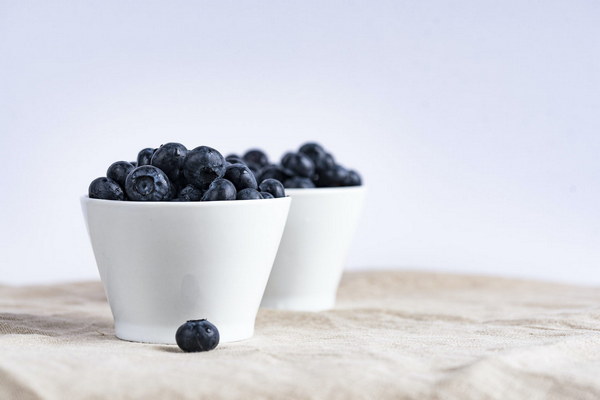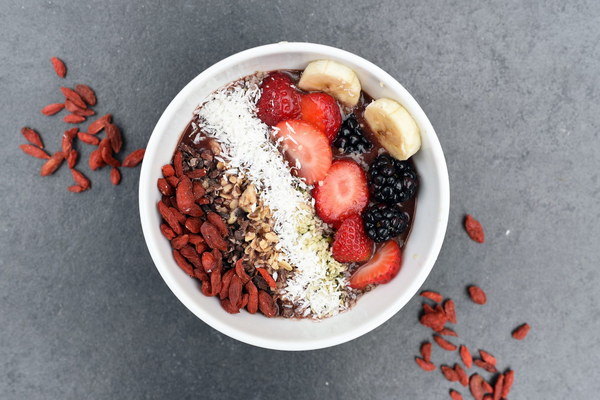Nourishing Your Stomach and Spleen A Guide to Dietary Supplements for Enhanced Digestive Health
Introduction:
The functioning of our digestive system is crucial for overall health and well-being. Among the various organs involved, the stomach and spleen play a pivotal role in the digestion and absorption of nutrients. To maintain optimal health, it is essential to support these vital organs through proper nutrition. This article delves into the world of dietary supplements and traditional foods that can help in nurturing your stomach and spleen, promoting a healthy digestive system.
1. Understanding the Stomach and Spleen:
The stomach and spleen are two organs that work together in the digestive process. The stomach is responsible for breaking down food into nutrients and eliminating waste, while the spleen helps in the absorption of nutrients and blood filtration. Ensuring the health of these organs is crucial for a robust immune system, energy levels, and overall well-being.
2. Dietary Supplements for Stomach and Spleen:
a) Probiotics: These beneficial bacteria help maintain a healthy gut flora, supporting the stomach and spleen. Foods rich in probiotics include yogurt, kefir, sauerkraut, and kimchi. Additionally, probiotic supplements are available in capsule or powder form.
b) Prebiotics: These are fibers that feed the probiotics, promoting their growth and activity. Prebiotic-rich foods include bananas, onions, garlic, leeks, and asparagus. Prebiotic supplements are also available in the form of powders or capsules.
c) Enzymes: Digestive enzymes, such as amylase, protease, and lipase, break down food into smaller molecules, aiding the spleen in nutrient absorption. Enzyme supplements are available in tablet or capsule form, and can be taken with meals.
d) Ginger: This spice has anti-inflammatory properties and helps to improve digestion. Consuming ginger in the form of tea, supplements, or fresh ginger can be beneficial for the stomach and spleen.
e) Licorice Root: Licorice root contains glycyrrhizin, a compound that has anti-inflammatory and immune-boosting properties. It can be taken as a tea, tincture, or supplement.
3. Traditional Foods for Stomach and Spleen:
a) Sweet Potatoes: These root vegetables are rich in beta-carotene, vitamins A and C, and fiber, making them ideal for supporting the spleen. They also help to regulate blood sugar levels.

b) Quinoa: This gluten-free grain is rich in protein, fiber, and amino acids, which are essential for a healthy spleen. It also contains B vitamins, which support the nervous system.
c) Chicken Soup: Chicken soup has long been regarded as a comfort food, but it also has digestive benefits. The broth helps to hydrate the body and provides nutrients that support the stomach and spleen.
d) Fermented Products: Fermented foods, such as miso, tempeh, and kimchi, contain probiotics and enzymes that aid digestion. These foods are also rich in vitamins and minerals, supporting overall health.
e) Seaweed: Seaweed is an excellent source of iodine, which is essential for the proper functioning of the thyroid gland. A healthy thyroid supports the stomach and spleen, as well as the entire digestive system.
4. Tips for Incorporating Dietary Supplements and Traditional Foods:
a) Consult a healthcare professional before starting any new supplement regimen to ensure it is safe and suitable for your individual needs.
b) Incorporate a variety of nutrient-rich foods into your diet to support the stomach and spleen.
c) Avoid overeating and consume small, frequent meals to aid digestion.
d) Manage stress, as chronic stress can negatively impact the digestive system.
Conclusion:
By incorporating dietary supplements and traditional foods into your diet, you can help nurture your stomach and spleen, promoting a healthy digestive system. Remember to consult with a healthcare professional before starting any new supplement regimen and to maintain a balanced, nutritious diet for optimal health.









